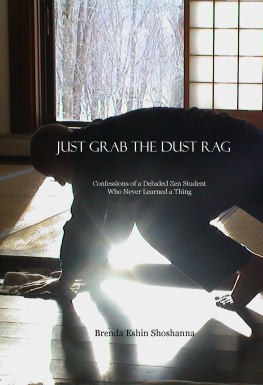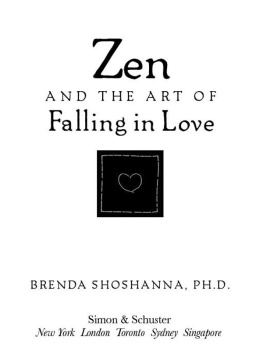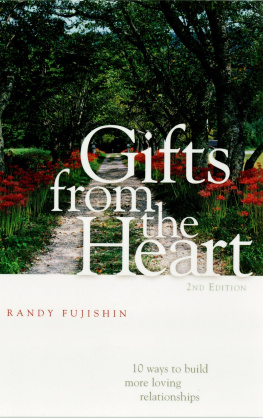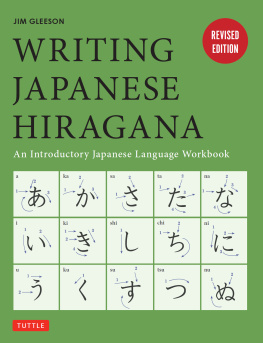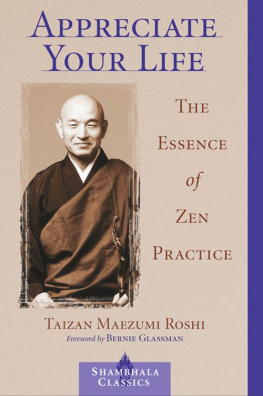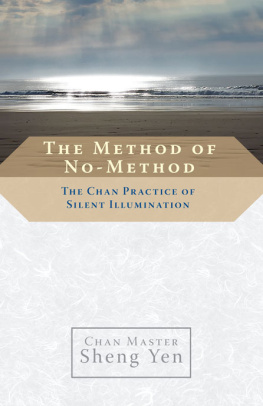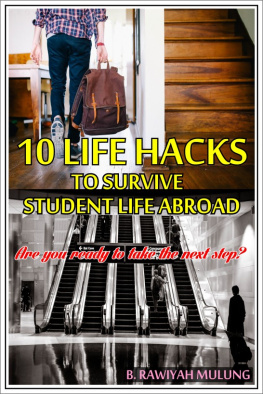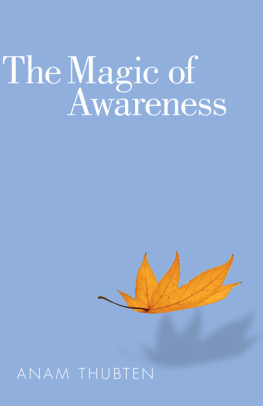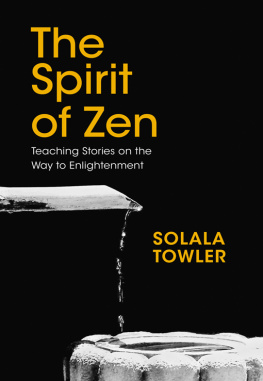
JUST GRAB THE DUST RAG
Confessions of a Deluded Zen Student Who Never Learned a Thing
A Book of Zen Moments
Brenda Eshin Shoshanna
This book is dedicated to all the wonderful teachers, family, friends and sangha members who have traveled the road with me. To all I offer deep thanks.
The book is also dedicated to unknown students, those searching in the hope that somehow these words and moments may be an aid or inspiration in stepping onto this ancient path.
Acknowledgments
Among the many teachers and sangha I have sat with over the years, I wish to thank and acknowledge Soen Nakagawa Roshi, Eido Shimano Roshi , Kyudo Roshi, Yamakawa Roshi , Charlotte Joko Beck, Robert Kennedy Roshi , Konrad Ryushin Marchaj Sensei, Sensei Geoffrey Shugen Arnold Sensei, Sara Birnbaum, Sheila Curtis, Michael Creeley, Jacques Van Engel, Haskel Fleishaker, Fujin, Peter Gamby, Edward Glassing, Michael Yukon Grody, Martin Hara, Anthony McKiernen, Min Pai, Vincent Piazza, Richard Schiffman, , Bernard Starr, Jacques Van Engel, Constantin Wickenburg, and many, many more.
I wish to offer special thanks and acknowledgment to Daishin Pawel Wojtasik for his deep, abiding love and commitment to Zen practice and to helping others along the way. I also thank him for his contribution of a wonderful cover photo and for being a dedicated reader as this book was being written, and offering unflagging encouragement and support.
I also thank Noah Lukeman and Adam Lukeman for their unfailing assistance in helping this book become available and fully realized.
Table of Contents
Foreword
This book is a history of one students many years of Zen practice. It is not intended as a history of the zendo or an expos. Many of the events that have transpired are not recorded. The book is not a social commentary, nor does it claim to provide any ultimate truths about the teachings of Buddha. This is simply a book of Zen moments, the experience of practice with wonderful Japanese Zen asters and dedicated students, or sangha. The book wishes to convey the richness and beauty of Zen practice, along with inevitable foibles and confusion.
Much has been written about the Zen practice and the difficulties it gave rise to. Most of these writings look at Zen from a sociological, psychological and moral point of view. This book offers a look at practice through a different lens; it attempts to view events and interactions from the point of view of Zen practice and teachings. Hopefully, it rounds out the picture and adjusts some distortions that have developed.
This is simply the experience of one slow student who stayed forever, loved the zendo and all it offered, and found great treasures and riches in it. She saw great healing there for many, along with trouble and discord. She also saw the incredible efforts and dedication of the teachers to bring this practice to the West, along with their failings. The full picture needs to be recorded. That which was greatly meaningful and beautiful need not be wiped away.
Introduction
One afternoon, when I was fifteen, a high school sophomore in Brooklyn, my history teacher motioned to me to stay after class. After everyone left, he slid over to me with something wrapped in brown paper in his hand. Obviously, he didnt want anyone else to see it.
This is for you, he murmured under his breath. Dont tell anybody. Take it home. I know youll love it. Then he handed me the slim package.
Scared, I took it, tucked it under my arm and ran right home. Once safely inside, I went to my room, shut the door and closed the blinds. Then I opened the package. Inside was a little book titled Studies In Zen by D.T. Suzuki. This had to be a dangerous book, I thought, wondering why my teacher thought it was just right for me. Completely unaware of what it was about, I flipped through the pages and started to read.
Immediately, I was drawn in. Right from the start I came upon questions and answers that had taken place between ancient Zen masters and their students. These exchanges, called mondos and koans, were completely inscrutable. They didnt make any sense, were impossible to figure out. Smiling, I devoured every word of them. Even though I had no idea what any of it meant, waves of joy washed over me. The more I read the more I was filled with unexpected happiness. This is it! I thought, delighted. This is fantastic, amazing, I kept murmuring, with no idea why I was so happy at last.
Excited and thrilled, I put the book in my pocket and didnt let it go for years and years. Wherever I went, I took it with me and read it over again. When people asked what it was about, I said, I have no idea. And I didnt, just couldnt stop reading the koans and mondos. I loved every one of them. When people asked what about it made me so happy, once again I said, I have no idea. When they asked me what the koans meant, I didnt know, couldnt say a word. All I knew was that, in an instant, my whole life had turned around.
As the years went by I kept reading that book, but made no progress. I tried though. I poured over the inscrutable questions, dwelt upon them, read other peoples commentaries, even wrote poems about them at the beach. But no matter what, I still didnt understand. And yet, whenever I engaged with these koans, my world opened wide. Emotional pain often quickly vanished and I learned what it meant to be a friend. Out of nowhere, life made sense. What kind of sense? Dont ask me. I dont understand.
Of course, when I suddenly married at age eighteen, the book came along with me down the aisle. Many times I asked my new husband if he thought my teacher would be coming to this country, or would I have to go to Japan?
Hes coming here, my husband reassured me, hoping I would stop asking the same question and that this teacher I was hoping for would soon arrive.
Eleven years later I began hearing about a monk from Japan who was conducting sesshinsZen meditation retreatson the East Coast. When I first heard about him I was pregnant with my daughter. The man who told me about him had just returned from studying with him at a retreat. The man said I couldnt do zazen anyway because I was pregnant. He was wrong, but I listened to him.
Two years passed before I heard about this monk again. I was pregnant with my second child then, and at that time, actually living down the street from the zendo, which is a center for Zen meditation. The zendo was in the process of being built then. I passed the building every day, not realizing that the monk was right inside, giving every ounce of his energy to getting things ready for us to sit. Of course, I still didnt know I could do zazen when I was pregnant, so I didnt look into it any further then.
Four years later, and after the birth of my third child, I suddenly heard about this monk again. Now I knew the time was coming. Id better get ready to go to the zendo and meet him, I thought. Before I went, though, I wanted someone to teach me how to do zazen.
Wado Vicky Gerdy appeared in my life just at that moment. We met in a class on sensory awareness and not only did she show me how to sit, she knew this monk personally, was part of the sangha (community) sitting with him. After one of our sensory awareness classes, we went into the dressing room and Vicky showed me how to do zazen in a quick offhand way.
I went home and tried. It was hard, it hurt, I squirmed, my knees stuck up and wouldnt go down into the cross-legged position. So I just did what I could each day. But what I couldnt understand was why even a little bit of sitting made each day so different. Or why, little by little, all by itself, my sittings grew longer, and my knees came down.
Next page
